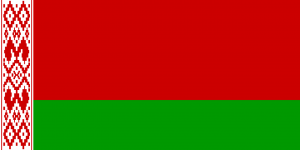Language/Belarusian/Grammar/Gender
| ◀️ Numbers and Time — Previous Lesson | Next Lesson — Cases ▶️ |
Welcome to the "Belarusian Grammar → Gender" lesson! Today, we will embark on an exciting journey through the world of noun genders in the Belarusian language. Understanding gender is essential for mastering Belarusian, as it affects how nouns, adjectives, and verbs interact within a sentence.
Why is Gender Important?
In Belarusian, every noun is categorized as either masculine, feminine, or neuter. This classification influences not just the noun itself, but also its accompanying adjectives and verbs. For example, using the correct gender helps convey the right meaning and maintains the grammatical harmony of your sentences.
In this lesson, we will:
- Define the three genders in Belarusian.
- Explore how to identify the gender of nouns.
- Discuss the endings of nouns for each gender.
- Provide numerous examples to solidify your understanding.
- Engage with exercises that will allow you to practice what you've learned.
Understanding Gender in Belarusian[edit | edit source]
In Belarusian, nouns are divided into three distinct genders:
- Masculine: Typically refers to male beings, but can also include objects and concepts that do not have a biological gender.
- Feminine: Generally pertains to female beings and certain nouns that are inherently feminine.
- Neuter: Encompasses objects, concepts, or beings that do not fit into the masculine or feminine categories.
Identifying Noun Genders[edit | edit source]
To identify the gender of a noun in Belarusian, you can look at its ending. Here’s a brief guide:
- Masculine nouns often end in a consonant, such as -к, -т, -р.
- Feminine nouns typically end in -а or -я.
- Neuter nouns usually conclude with -о or -е.
Let's take a closer look at some examples.
| Belarusian | Pronunciation | English |
|---|---|---|
| стол | stal | table (masculine) |
| кніга | kniha | book (feminine) |
| акно | akno | window (neuter) |
| дом | dom | house (masculine) |
| школа | shkola | school (feminine) |
| моры | mory | sea (neuter) |
| брат | brat | brother (masculine) |
| сястра | syastra | sister (feminine) |
| дзіця | dziatsia | child (neuter) |
| горад | hrad | city (masculine) |
| зямля | ziamlia | earth (feminine) |
| сэрца | siertsa | heart (neuter) |
Gender and Noun Endings[edit | edit source]
It’s crucial to recognize the common noun endings that indicate gender. Here are some rules to help you:
- Masculine Endings:
- Consonants: -к, -г, -р, -т
- Examples:
| Belarusian | Pronunciation | English |
|---|---|---|
| чалавек | chalavek | person |
| аўтамабіль | autamabil | car |
- Feminine Endings:
- -а, -я
- Examples:
| Belarusian | Pronunciation | English |
|---|---|---|
| матка | matka | mother |
| дзяўчына | dziavchyna | girl |
- Neuter Endings:
- -о, -е
- Examples:
| Belarusian | Pronunciation | English |
|---|---|---|
| яно | yano | it |
| мора | mora | sea |
Practice Exercises[edit | edit source]
Now that we've covered the basics, let’s put your knowledge to the test with some exercises.
Exercise 1: Identify the Gender[edit | edit source]
Determine the gender of the following nouns:
1. вуліца (street)
2. кошка (cat)
3. яблык (apple)
4. гора (mountain)
5. вока (eye)
Solutions:
1. вуліца - feminine
2. кошка - feminine
3. яблык - masculine
4. гора - feminine
5. вока - neuter
Exercise 2: Fill in the Correct Form[edit | edit source]
Fill in the blanks with the correct form of the adjective based on the gender of the noun.
1. _____ дом (big)
2. _____ кніга (interesting)
3. _____ дзіця (small)
4. _____ горад (new)
5. _____ школа (old)
Solutions:
1. вялікі (vialiki) дом
2. цікавая (tsikavaia) кніга
3. маленькае (malenkae) дзіця
4. новы (novy) горад
5. старая (staraia) школа
Exercise 3: Matching Game[edit | edit source]
Match the Belarusian nouns with their correct genders.
- A. брат
- B. кошка
- C. акно
- D. школа
- E. дзень
1. Masculine
2. Feminine
3. Neuter
Solutions:
A - 1 (брат - masculine)
B - 2 (кошка - feminine)
C - 3 (акно - neuter)
D - 2 (школа - feminine)
E - 1 (день - masculine)
Exercise 4: Gender Transformation[edit | edit source]
Change the following masculine nouns into feminine nouns.
1. бацька (father)
2. вучань (student)
3. настаўнік (teacher)
4. сусед (neighbor)
5. герой (hero)
Solutions:
1. маці (mother)
2. вучаніца (female student)
3. настаўніца (female teacher)
4. суседка (female neighbor)
5. гераіня (heroine)
Exercise 5: Gender Identification in Sentences[edit | edit source]
Identify the gender of the underlined nouns in the following sentences.
1. Я люблю ____ (кошка).
2. У ____ (дома) ёсць сад.
3. Гэта ____ (акно) зялёнае.
4. ____ (дзіця) спіць.
5. Я бачу ____ (брат).
Solutions:
1. ко́шка - feminine
2. дом - masculine
3. акно - neuter
4. дзіця - neuter
5. брат - masculine
Conclusion[edit | edit source]
Understanding the gender of nouns is crucial for forming correct sentences in Belarusian. By recognizing noun endings and practicing with various exercises, you can strengthen your grasp of gender in the language. Keep practicing, and soon you'll be using gender with confidence!
Sources[edit | edit source]
Other Lessons[edit | edit source]
- Questions
- Negation
- Possessive Pronouns
- Adverbs
- Give your Opinion
- Personal Pronouns
- Prepositions
- Nouns
- Future Tense
| ◀️ Numbers and Time — Previous Lesson | Next Lesson — Cases ▶️ |

